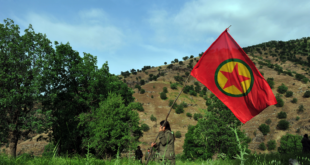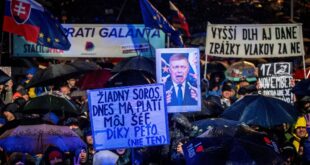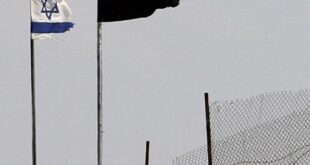 NATO Secretary-General Jaap de Hoop Scheffer expressed solidarity Tuesday (June 12th) with Turkey’s fight against terrorism, while also urging Ankara to show “maximum restraint” in dealing with Kurdistan Workers’ Party (PKK) bases in northern Iraq.NATO cannot play a direct role there, but it shows its solidarity and is involved in the fight against terrorism. NATO hopes a solution can be found with the maximum of restraint,” de Hoop Scheffer said during a joint press conference in Ankara with Turkish Foreign Minister Abdullah Gul.
NATO Secretary-General Jaap de Hoop Scheffer expressed solidarity Tuesday (June 12th) with Turkey’s fight against terrorism, while also urging Ankara to show “maximum restraint” in dealing with Kurdistan Workers’ Party (PKK) bases in northern Iraq.NATO cannot play a direct role there, but it shows its solidarity and is involved in the fight against terrorism. NATO hopes a solution can be found with the maximum of restraint,” de Hoop Scheffer said during a joint press conference in Ankara with Turkish Foreign Minister Abdullah Gul.
He denied allegations made last month by Turkish military chief General Yasar Buyukanit, who said that some Alliance members had provided weapons or logistical support to the PKK. “NATO allies do not give support to what NATO describes as a terrorist organisation, which is the PKK,” de Hoop Scheffer said.
His remarks came as pressure grows within Turkey for a military cross-border operation into northern Iraq to eliminate the threat posed by PKK bases in mountainous regions there.
Despite calls by nationalists for such action, Prime Minister Recep Tayyip Erdogan has indicated that he does not favour an incursion. PKK militants within Turkey far outnumber those in Iraq, he said.
“There are 5,000 terrorists in the mountains in Turkey,” he said ahead of a high-level security meeting attended by cabinet members and senior army commanders Tuesday. “Is the struggle against them over? Has this issue been resolved so that we can come to dealing with the 500 terrorists in northern Iraq?”
A military strike in Iraq should be “the last thing to do”, the prime minister declared. He said his administration would insist on reaching a solution via diplomacy, and would even consider inviting Iraqi Prime Minister Nouri al-Maliki to discuss the issue.
The same day, the PKK offered a “unilateral ceasefire”, though it also hinted at more violence if the Turkish military continues efforts to crack down on the group. Tens of thousands of Turkish troops have been deployed in the southeast, where Kurdish militants are most active, and “temporary security zones” have been established in several areas.
“If the government wants to reduce the tensions and hold the elections in a secure climate, the only way for it is to stop the military’s attacks,” the PKK said in a statement.
At least 56 members of the Turkish security forces have been killed this year in attacks by the PKK. Seven civilians were killed in May when a suicide bomber, believed to be a PKK terrorist, blew himself up at a busy shopping centre in Ankara.
The US State Department said on Tuesday that a so-called ceasefire is no substitute for a total end to activity by the PKK.
“The PKK is a terrorist organisation,” spokesman Sean McCormack told reporters. “We take quite seriously the concerns of the Turkish government. They’ve lost lives … and it’s an issue that needs to be dealt with.”
 Eurasia Press & News
Eurasia Press & News



